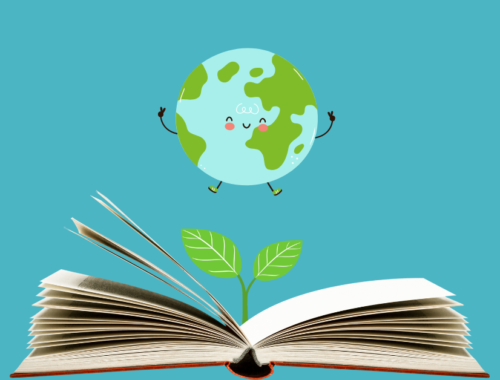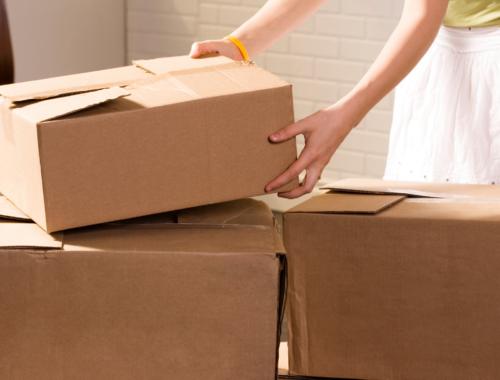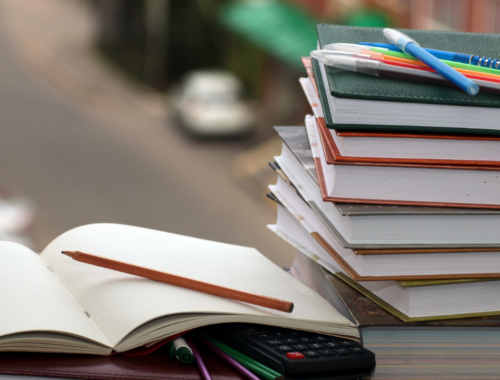
For avid readers, there are few things that are more satisfying than a shelf filled to the brim with well-organized books. We love to alphabetize the stacks in our own homes, picking the perfect book for the evening, with a special joy reserved for adding a new title to these collections. Unfortunately, these bookshelves don’t tend to stay well-organized for long…
Sure, a huge in-home library can be a wonderful thing, but for those living in small spaces or are overwhelmed by an overflowing mess, paring down your piles may be the best option.
If your shelves are full beyond their brim, it may be time to time to consider decluttering your books. Here’s how to declutter even the most formidable book collections.
1. Commit to decluttering books
The idea seems simple at first, but when we consider that our collections—whether it be books, stuffed animals, decorative plates, you name it—often have emotional or sentimental value to us, downsizing can be daunting.
Though reading may be a large part of your life, know that the books in your home do not define your sense of self. Don’t enter a vicious cycle of asking yourself, “what if I need this book for the future?”
Instead, try to adopt a positive mindset around the process of decluttering books. For example, perhaps by getting rid of some of your books, you are making room for new books. Maybe you are planning to move homes soon, and a smaller collection will make the move far smoother. Feel free to check tips on how to pack books for moving.
No matter your reasoning, the first step to declutter books is simple: commit to the task.
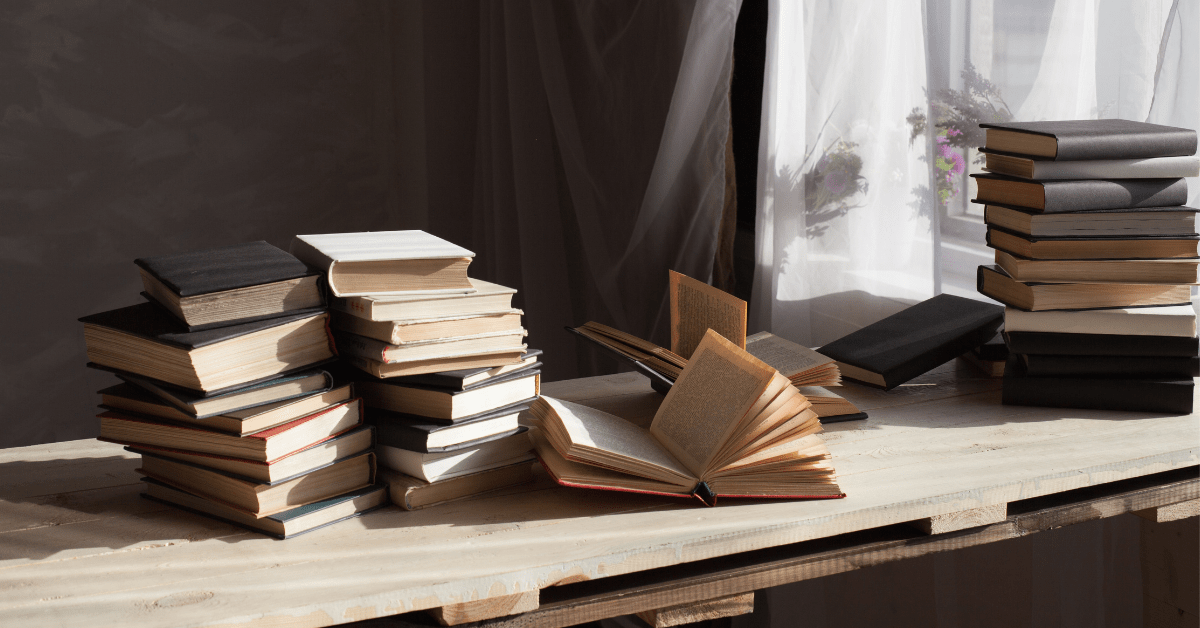
2. Sort your collection into three sections
Every reader has a different method on how to declutter books, but one of the most common is by sorting their books into three piles: books they’ve read, books they plan to read (also known as TBR), and books that they will honestly NEVER read.
From there, decluttering books becomes much easier, as it allows you to examine each book individually.
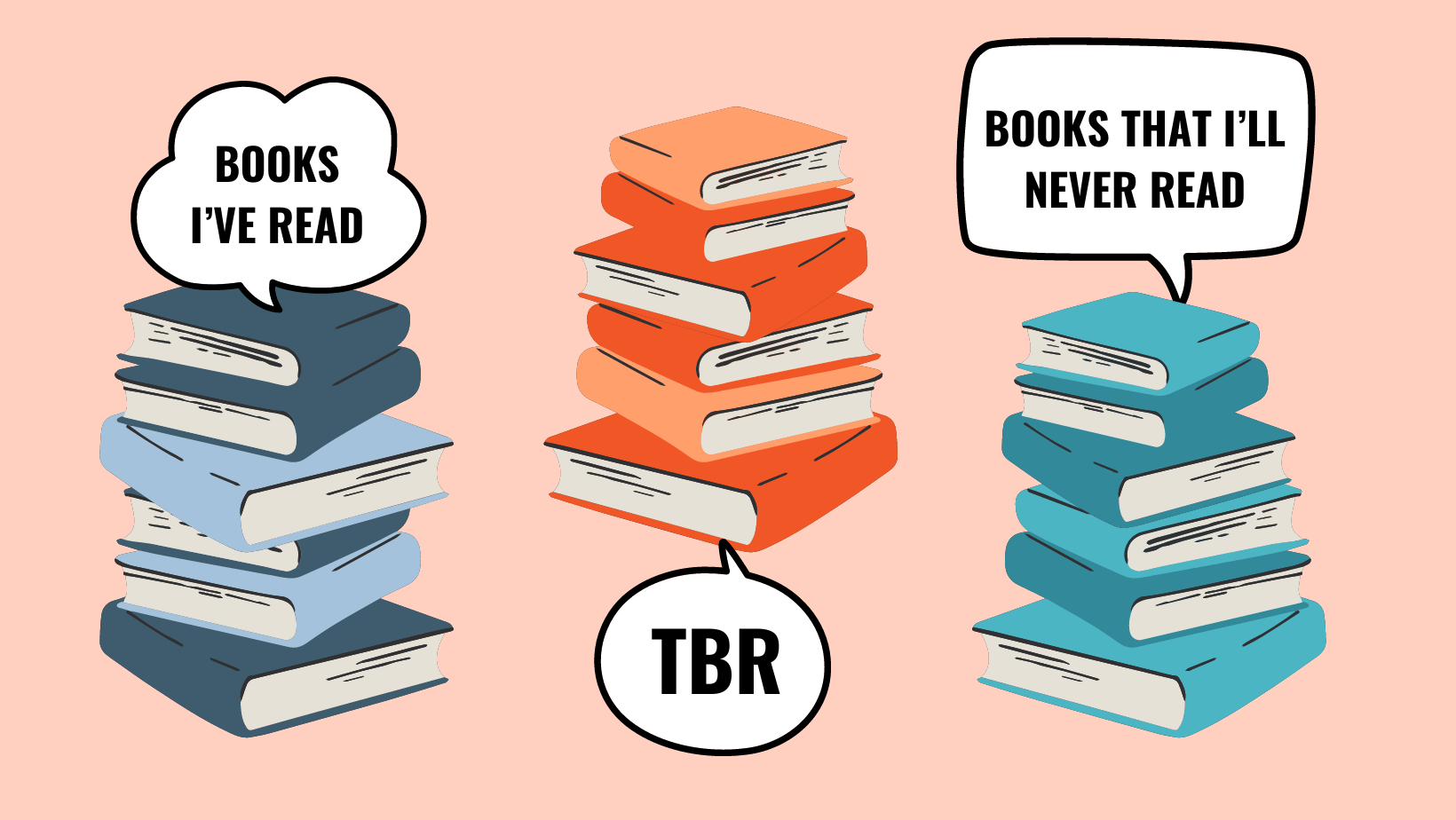
3. Think critically about every book in your collection
Especially if you have an emotional attachment to your books, it is important to think critically and logically about whether or not you should keep a book.
For books that you’ve read in the past, ask yourself a few questions, such as:
- Did I enjoy reading this book?
- Will I read this book again?
- Does it have any significance to me, i.e. sentimental value?
If the answer is YES to all of these questions, this book may be worth keeping. However, if the answer is a resounding NO, put it in the discard pile.
For books in your collection that you have not read, try asking yourself:
- Do I truly plan to read this book?
- If yes, why haven’t I read this book yet?
- Why am I holding on to this book?
If you never plan to read the book, put it in the discard pile. If it’s a book that has been sitting on your TBR list for ages and you simply haven’t gotten around to it yet, it is perfectly reasonable to keep.
Some people like to keep books they have never read for aesthetic purposes, such as if the book is a literary classic or looks great as a decoration. This is understandable, but can lead to extensive clutter down the line. Instead, we suggest investing in more attractive versions of the quality books you love—such as a gilded hardback rather than a beat-up old paperback—to ensure that your collection is both fashionable and functional.

4. Decide what to do with your books
For some, decluttering books is the easy part—it’s getting rid of them that is difficult. Leaving stacks of books you don’t want around the house for months doesn’t aid in decluttering, which is why you should decide how to get rid of your books as soon as possible. Here are a few methods:
![]() Gift beloved books to friends
Gift beloved books to friends
For books that you’ve read and legitimately enjoyed, but no longer want or need in your collection, consider gifting them to a friend or family member who would enjoy it, too. This is a great way to spread the love between readers and a great conversation starter—you can talk about the book with the giftee after they’ve read it! At the same time, make sure your present is not a candidate to collect dust on your friend’s shelf or be sold as an unwanted gift.
![]() Earn money by selling your books
Earn money by selling your books
If you are discarding books that may be valuable, such as textbooks or rare editions, it may be worth your time to sell them.
Many book lovers choose to sell their books online. However, spending time creating listings and shipping books to customers can be time-consuming and may still lead to book piles around your home. Tools like BookScouter are fantastic for this purpose, as it will help you sell your books directly to vendors in order to get the best price—no waiting around for flaky customers on sites like Ebay!
You can also sell your books in person at second hand bookstores, which will buy back your books for a reduced price, though they may not purchase all of them.
![]() Donate your books
Donate your books
If your books aren’t valuable (or the second hand bookstore didn’t want to purchase them) your last option is to donate used books. There are many types of book charities in the US that allow book donations. Thrift stores will accept nearly every type of book, while libraries may be a bit more discerning. If you decluttered a number of children’s books, many schools or children’s libraries would be happy to take them.
Just remember, don’t donate trash. If you’ve decluttered books due to damage, it may be best to throw those titles in the trash rather than pawning them off to a charitable organization. Check out our guide on book recycling.
5. Don’t get discouraged
Decluttering books isn’t easy, especially when you have a hoard of beloved books. Remember that your books don’t define you, and with a smaller, more manageable collection, you may be happier.

